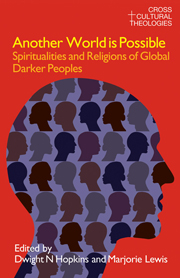Book contents
- Frontmatter
- Dedication
- Contents
- Acknowledgements
- Contributors
- Introduction
- Part I India
- 1 The Untouchable “Dalits” of India and their Spiritual Destiny
- 2 Dalits in India: Key Problems/Issues and Role of Religion
- Part II Japan
- Part III Australia
- Part IV Hawaii
- Part V England
- Part VI South Africa
- Part VII Botswana
- Part VIII Zimbabwe
- Part IX Ghana
- Part X Cuba
- Part XI Jamaica
- Part XII Brazil
- Part XIII USA
- Endnotes
- Select Bibliography
- Index of Subjects
- Index of Names
2 - Dalits in India: Key Problems/Issues and Role of Religion
from Part I - India
- Frontmatter
- Dedication
- Contents
- Acknowledgements
- Contributors
- Introduction
- Part I India
- 1 The Untouchable “Dalits” of India and their Spiritual Destiny
- 2 Dalits in India: Key Problems/Issues and Role of Religion
- Part II Japan
- Part III Australia
- Part IV Hawaii
- Part V England
- Part VI South Africa
- Part VII Botswana
- Part VIII Zimbabwe
- Part IX Ghana
- Part X Cuba
- Part XI Jamaica
- Part XII Brazil
- Part XIII USA
- Endnotes
- Select Bibliography
- Index of Subjects
- Index of Names
Summary
The Term or Name “Dalit”
The term “dalit” is perhaps one of the most ancient terms, which has not only survived until the present day, but is also shared by a few of the world's oldest languages. For example, Hebrew and Sanskrit, though they differ in their grammatical structure and in their lexicographical connotation, share the term “dalit” almost with the same root and sense. The Hebrew root of “dalit” is “dall,” which means hang down, to be languid, be weakened, be low and feeble. On the other hand, the Sanskrit root of “dalit” is “dal,” which means to crack, spilt, be broken or torn asunder, trodden down, scattered, crushed and destroyed. The meanings referred to here are the literal meanings of the two roots (Hebrew and Sanskrit) of the term “dalit”. But beside these definitions, in real usages in specific contexts these words have been used to define the identity of some groups or communities, which have been excluded by the dominant communities. For example “dall,” or its other grammatical forms (dal, dalah, dalat or dalot), has occurred more than fifty times in the Hebrew biblical literature and these references have been used for those people, “whose prosperity and social status have been reduced. In this respect they are the opposite of the rich (Exodus 23:3, 30:15; Leviticus 14:21; Proverbs 22:16 and others). In physical strength, in psychological ability, they are also impaired and helpless (Job 34:28; Psalms 83:3; Jeremiah 40:7, 52:16 and others)”.
- Type
- Chapter
- Information
- Another World is PossibleSpiritualities and Religions of Global Darker Peoples, pp. 20 - 30Publisher: Acumen PublishingPrint publication year: 2009



